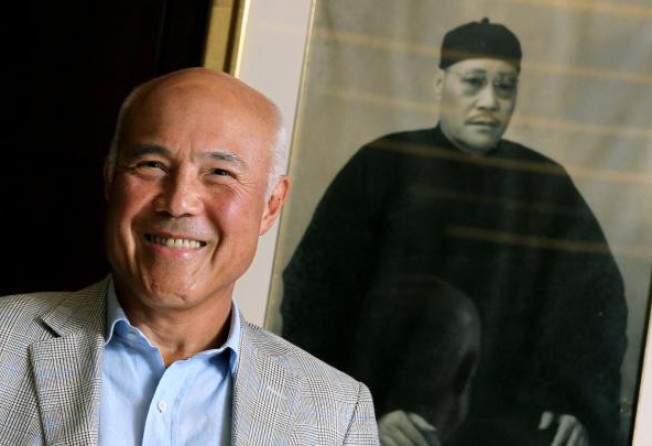Divisive wetland development tycoon Adrian Fu's lifetime mission
Adrian Fu defends his determination to see family's Nam Sang Wai site developed for housing despite widespread opposition

For conservationists, Nam Sang Wai is one of the Hong Kong wetlands that should be preserved for future generations.
But for Adrian Fu Hau-chak, a 65-year-old tycoon from a prominent family in Macau, a development on the site is almost a life-long mission, one he does not want his successors to have to deal with.
"I am the most knowledgeable person about this project," said Fu, when asked if he expected the hot potato to be left to his children to deal with. "The fourth generation has no experience in this."
Fu, a grandson of Fu Tak-iam, a Macau casino tycoon, usually stays behind the scenes of the project at Deep Bay, but chose to discuss it before a public consultation about the wetland housing plan ends tomorrow.
"I am getting old and this is something I must do, for my grandfather and also our shareholders," he said.
More than 300 submissions have been received by the Town Planning Board, most of them thought to be objections to the 1,600-unit housing project - including 960 low-rise units - on a site of 178 hectares.
Separating Fu and the conservationists is a huge rift.
Project opponents want no development on the wetland, while Fu said the rights of the property owners had to be respected.
Having said that, Fu still hopes for a "rational and objective discussion", and pledges to be open-minded in addressing opponents' concerns.
"No matter who is right or wrong, we have to find a compromise acceptable to all of us," said Fu, who co-owns the wetland site with Henderson Land through Nam Sang Development Company. Henderson previously led the project, but took a back seat after its original and more ambitious development plans failed to win support.
Fu also warned that scrapping the development would mean the wetland would be left to rot and become further degraded in the years to come since no one would be willing to culture fish there.
He appealed to the project's opponents to step into the shoes of the other parties involved, and find common denominators for the government, the developers and the conservationists. He said killing the development was not an option.
"Our project is going to meet the housing demands, the environmental standards, and the needs of non-governmental organisations," said Fu, suggesting that government departments seemed to be in favour of the project.
While many conservationists want the development frozen and a land swap organised to spare the wetland, Fu said this was not viable.
"It will not increase housing supply. It will only create a new problem of picking some other corner of the city on which a 50-storey high-rise will be erected," he said.
The latest proposal will also incorporate social elements, such as designating some of the units in five housing blocks as home-ownership-scheme flats.
A home for the elderly, a day-care centre and a rehabilitation centre for the mentally disabled will also be built nearby, as well as a visitor centre for bird watching.
But whether these social aspects of the proposal can help turn the tide of opposition against it remains to be seen.
Technically speaking, the wetland was lost to development when the colonial government agreed to a land exchange with Nam Sang in the mid-1960s to develop housing in three phases.
But that has never been realised because of a lack of infrastructure and the many squatters in the area. In 1978, Nam Sang was told by the government that the plan could not go ahead unless it could find sufficient soil to fill the fish ponds in the area.
"When it comes to development in the New Territories, it is a completely different story from urban areas because of infrastructure availability," Fu said.
In the 1990s, Henderson formally entered into a deal with the Fu family and become a co-owner of the site.